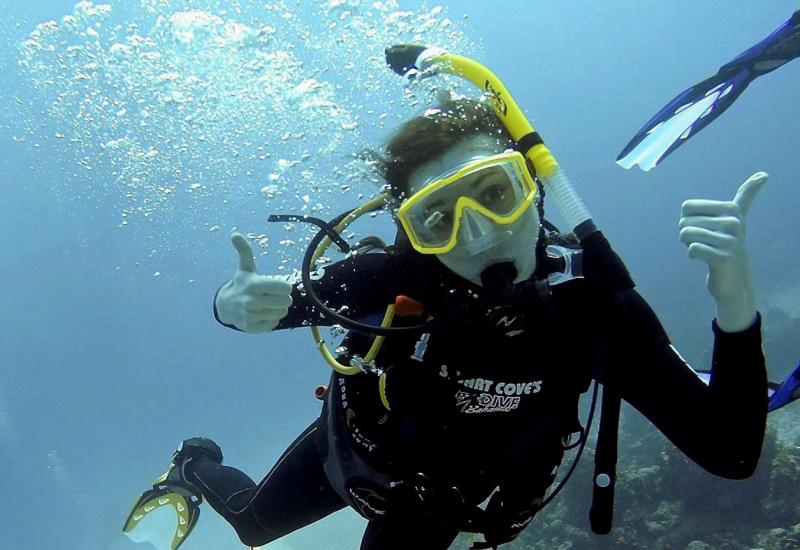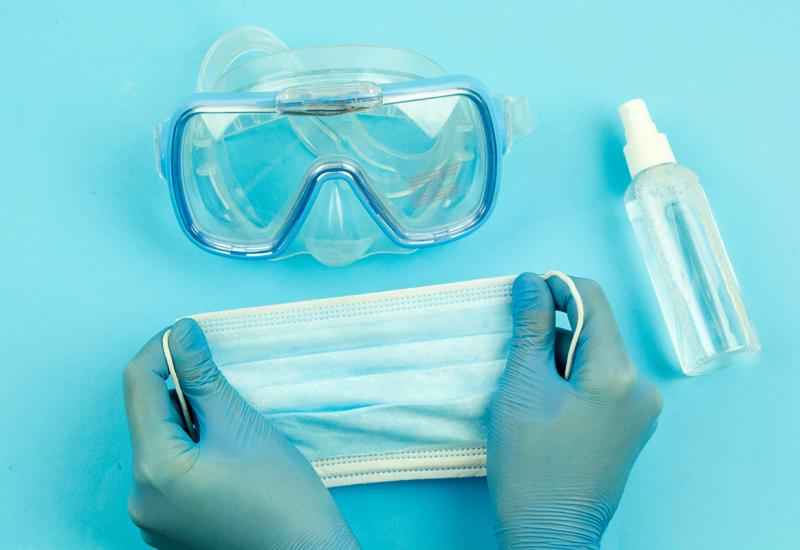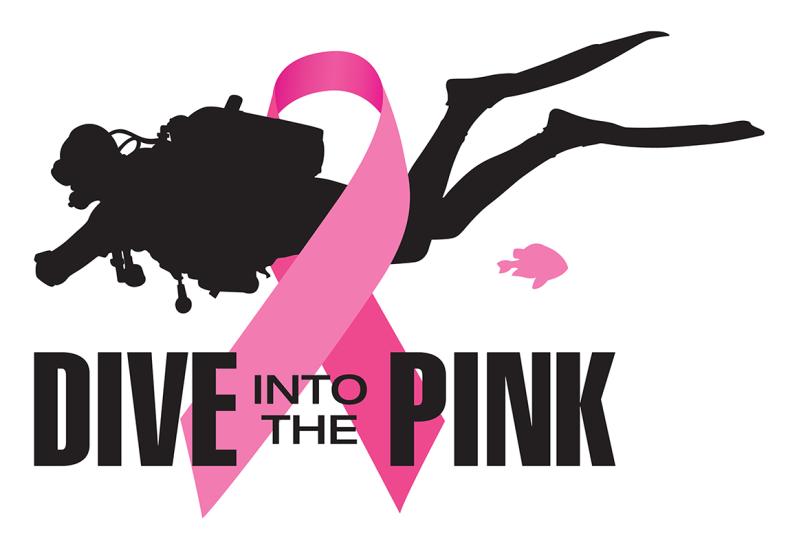Ask DAN: Diabetes and Scuba Diving
For many years, diabetes was one of the headliners on the list of illnesses that kept potential divers from getting in the water. In a 2005 report, the National Diabetes Information Clearinghouse reported nearly 21 million cases of diabetes in the U.S. alone, about 7 percent of the population. But recent studies have shown that this condition doesn't necessarily mean diabetics can't dive. As more people are cleared for diving on a case-by-case basis, DAN receives an increasing number of inquiries from divers asking about diving with diabetes, so this month we'll take a look at the implications of diving with the condition and discuss some of the issues to consider before taking the plunge.
Defining Diabetes
Diabetes mellitus is a disease in which the patient's body doesn't produce or effectively respond to insulin, a hormone required to process glucose (sugar) in the blood. People with diabetes can suffer from excessively high blood sugar, called hyperglycemia, or excessively low blood sugar, called hypoglycemia. Low blood sugar can cause confusion, sweating, rapid heartbeat, unconsciousness and even death. High blood sugar levels may also cause unconsciousness, but this usually develops much more slowly than with hypoglycemia.
Diabetes itself has two major classifications: Type I, which requires insulin injections to control blood sugar levels, and Type II, which doesn't require the injections and often arises as a complication of obesity. Type II diabetes can be successfully managed with weight control, proper diet, exercise and, if necessary, medications other than insulin.
Blood sugar levels are the immediate and most frequently monitored concern for diabetes patients, but the condition can also cause long-term problems, such as vision problems, kidney malfunction, coronary artery disease and changes in the nervous system, including poor circulation in the limbs. A diabetic person's fitness to dive must be constantly monitored and re-evaluated by a doctor to keep the diver as safe as possible. Another big problem for divers is that, on deep dives, hypoglycemia can be potentially mistaken for nitrogen narcosis and ignored.
Guidelines for Diving with Diabetes
Assuming it has been discussed and cleared with a doctor familiar with diving, a diabetic who is considering becoming a diver has some land-based work to do first. First, these divers need to establish baselines for the effects of exercise on their blood sugar levels by measuring these levels before and after moderate exercise, like jogging or swimming, to see how these physical demands affect their insulin requirements.
Next, they need to recreate some of the surface activities associated with diving, such as loading or carrying tanks. Assuming no hypoglycemia occurs, diving should start in a controlled environment before moving to a calm open-water environment. Subsequent dives should gradually increase in depth, with the divers always tracking the effects of the exercise on their blood sugar levels. They should also keep a log of the foods they eat throughout the day. A big part of the job for anyone trying to manage diabetes and diving is gathering as much information as possible on his or her situation.
In the past decade, DAN has conducted a dedicated study on diabetes and diving. Complete proceedings are available from DAN (see box above). The following list is an excerpt of the recommended guidelines that every diabetic diver should incorporate into his or her dive planning.
What to Avoid
- Depths greater than 100 feet
- Dives longer than 60 minutes
- Required decompression stops (this does not include safety stops)
- Overhead environments (cave or wreck penetration)
- Situations that may exacerbate hypoglycemia (cold water, strong current or other overly strenuous situations)
In addition, diabetic divers should always tell their dive buddies and dive leaders about their condition in case of an emergency, and at least one member of the buddy/dive team should not suffer from diabetes.
Glucose Management
Blood glucose levels should be monitored every 30 minutes starting at least an hour before the dive, and the dive should be delayed if blood glucose levels fall below 150 mg/dL-1 or rise above 300 mg/dL-1.
Prevention and Response
Diabetic divers should have an emergency response plan, including the preventative steps to avoid the emergency in the first place. Here are a few special considerations:
- Carry readily accessible oral glucose during all dives.
- Have a glucagon injection available at the surface.
- If hypoglycemia occurs underwater, surface normally (with buddy), establish positive buoyancy, ingest glucose and get out of the water.
- Check blood sugar frequently for 12 to 15 hours after diving.
- Ensure adequate hydration on diving days.
- Include blood glucose level test results and all necessary diabetes management information in dive logs.
It's also a good idea for diabetic divers to take a break from the water any time their treatment requires a change, whether it's starting, stopping or changing medication, or simply adjusting the dosage. This holds true for any change in condition as well, including hypo/hyperglycemic episodes that require help from a third party or the development of secondary complications, whether they are directly related to diabetes or otherwise.
NonInsulin Diabetes Medicine and Diving
Most individuals who have Type II diabetes use oral medications or non-insulin injections to control blood glucose levels, and DAN gets a lot of questions about potential complications with diving on these medications. There is very little scientific information available regarding specific medications and diving, but generally, dive medicine professionals haven't found any scientific data to suggest these medications cause any problems under pressure. However, it is important for people taking these medications to have discussions with their doctors about all the potential side effects or adverse reactions associated with each medication and how they may affect their ability to function.
When starting a new medication, a person's body needs to adjust to it. Aside from the obvious risks of diving while experiencing side effects, some of those that might manifest during the adjustment period could be confused with decompression sickness, so suspending diving activities is important to avoid any clinical confusion after diving. It's also essential for these divers to know exactly how they react to their medications on the surface, so they'll be able to pinpoint any strange side effects underwater.
Some of the more common oral medications are Diabeta (glyburide), Glucophage (metformin), Glucotrol (glipizide) and Januvia (sitagliptin). A noninsulin injection used to manage Type II diabetes is Byetta (exenatide). All of these medications can be used alone or in combination. Some of the side effects of these medications can be quite profound. They can include metabolic disorders, blood disorders and liver and kidney disorders. Divers using one or more of these may need periodic laboratory studies on blood samples to monitor these concerns. Before traveling, especially outside the United States, divers should have ample medication(s) and related supplies.
Diabetes and Diving
To obtain a copy of DAN's "Diabetes and Recreational Diving: Guidelines for the Future," a compilation of papers, discussions and information presented at an international workshop, call (800) 446-2671 or visit diversalertnetwork.org. DAN also offers a free online seminar called "Diabetes & Diving: History and New Guidelines" at diversalertnetwork.org/training/seminars/index.asp
What is DAN?
Divers Alert Network (DAN) is a 501(c)(3) nonprofit medical and research organization dedicated to the safety and health of recreational scuba divers.
For diving emergencies, call the DAN 24-Hour Diving Emergency Hotline: (919) 684-4DAN (collect calls accepted).
For nonemergency questions, call the DAN Medical Information Line at (919) 684-2948.
Additional information can be found at www.diversalertnetwork.org.
For many years, diabetes was one of the headliners on the list of illnesses that kept potential divers from getting in the water. In a 2005 report, the National Diabetes Information Clearinghouse reported nearly 21 million cases of diabetes in the U.S. alone, about 7 percent of the population. But recent studies have shown that this condition doesn't necessarily mean diabetics can't dive. As more people are cleared for diving on a case-by-case basis, DAN receives an increasing number of inquiries from divers asking about diving with diabetes, so this month we'll take a look at the implications of diving with the condition and discuss some of the issues to consider before taking the plunge.
Defining Diabetes
Diabetes mellitus is a disease in which the patient's body doesn't produce or effectively respond to insulin, a hormone required to process glucose (sugar) in the blood. People with diabetes can suffer from excessively high blood sugar, called hyperglycemia, or excessively low blood sugar, called hypoglycemia. Low blood sugar can cause confusion, sweating, rapid heartbeat, unconsciousness and even death. High blood sugar levels may also cause unconsciousness, but this usually develops much more slowly than with hypoglycemia.
Diabetes itself has two major classifications: Type I, which requires insulin injections to control blood sugar levels, and Type II, which doesn't require the injections and often arises as a complication of obesity. Type II diabetes can be successfully managed with weight control, proper diet, exercise and, if necessary, medications other than insulin.
Blood sugar levels are the immediate and most frequently monitored concern for diabetes patients, but the condition can also cause long-term problems, such as vision problems, kidney malfunction, coronary artery disease and changes in the nervous system, including poor circulation in the limbs. A diabetic person's fitness to dive must be constantly monitored and re-evaluated by a doctor to keep the diver as safe as possible. Another big problem for divers is that, on deep dives, hypoglycemia can be potentially mistaken for nitrogen narcosis and ignored.
Guidelines for Diving with Diabetes
Assuming it has been discussed and cleared with a doctor familiar with diving, a diabetic who is considering becoming a diver has some land-based work to do first. First, these divers need to establish baselines for the effects of exercise on their blood sugar levels by measuring these levels before and after moderate exercise, like jogging or swimming, to see how these physical demands affect their insulin requirements.
Next, they need to recreate some of the surface activities associated with diving, such as loading or carrying tanks. Assuming no hypoglycemia occurs, diving should start in a controlled environment before moving to a calm open-water environment. Subsequent dives should gradually increase in depth, with the divers always tracking the effects of the exercise on their blood sugar levels. They should also keep a log of the foods they eat throughout the day. A big part of the job for anyone trying to manage diabetes and diving is gathering as much information as possible on his or her situation.
In the past decade, DAN has conducted a dedicated study on diabetes and diving. Complete proceedings are available from DAN (see box above). The following list is an excerpt of the recommended guidelines that every diabetic diver should incorporate into his or her dive planning.
What to Avoid
- Depths greater than 100 feet
- Dives longer than 60 minutes
- Required decompression stops (this does not include safety stops)
- Overhead environments (cave or wreck penetration)
- Situations that may exacerbate hypoglycemia (cold water, strong current or other overly strenuous situations)
In addition, diabetic divers should always tell their dive buddies and dive leaders about their condition in case of an emergency, and at least one member of the buddy/dive team should not suffer from diabetes.
Glucose Management
Blood glucose levels should be monitored every 30 minutes starting at least an hour before the dive, and the dive should be delayed if blood glucose levels fall below 150 mg/dL-1 or rise above 300 mg/dL-1.
Prevention and Response
Diabetic divers should have an emergency response plan, including the preventative steps to avoid the emergency in the first place. Here are a few special considerations:
- Carry readily accessible oral glucose during all dives.
- Have a glucagon injection available at the surface.
- If hypoglycemia occurs underwater, surface normally (with buddy), establish positive buoyancy, ingest glucose and get out of the water.
- Check blood sugar frequently for 12 to 15 hours after diving.
- Ensure adequate hydration on diving days.
- Include blood glucose level test results and all necessary diabetes management information in dive logs.
It's also a good idea for diabetic divers to take a break from the water any time their treatment requires a change, whether it's starting, stopping or changing medication, or simply adjusting the dosage. This holds true for any change in condition as well, including hypo/hyperglycemic episodes that require help from a third party or the development of secondary complications, whether they are directly related to diabetes or otherwise.
NonInsulin Diabetes Medicine and Diving
Most individuals who have Type II diabetes use oral medications or non-insulin injections to control blood glucose levels, and DAN gets a lot of questions about potential complications with diving on these medications. There is very little scientific information available regarding specific medications and diving, but generally, dive medicine professionals haven't found any scientific data to suggest these medications cause any problems under pressure. However, it is important for people taking these medications to have discussions with their doctors about all the potential side effects or adverse reactions associated with each medication and how they may affect their ability to function.
When starting a new medication, a person's body needs to adjust to it. Aside from the obvious risks of diving while experiencing side effects, some of those that might manifest during the adjustment period could be confused with decompression sickness, so suspending diving activities is important to avoid any clinical confusion after diving. It's also essential for these divers to know exactly how they react to their medications on the surface, so they'll be able to pinpoint any strange side effects underwater.
Some of the more common oral medications are Diabeta (glyburide), Glucophage (metformin), Glucotrol (glipizide) and Januvia (sitagliptin). A noninsulin injection used to manage Type II diabetes is Byetta (exenatide). All of these medications can be used alone or in combination. Some of the side effects of these medications can be quite profound. They can include metabolic disorders, blood disorders and liver and kidney disorders. Divers using one or more of these may need periodic laboratory studies on blood samples to monitor these concerns. Before traveling, especially outside the United States, divers should have ample medication(s) and related supplies.
Diabetes and Diving
To obtain a copy of DAN's "Diabetes and Recreational Diving: Guidelines for the Future," a compilation of papers, discussions and information presented at an international workshop, call (800) 446-2671 or visit diversalertnetwork.org. DAN also offers a free online seminar called "Diabetes & Diving: History and New Guidelines" at diversalertnetwork.org/training/seminars/index.asp
What is DAN?
Divers Alert Network (DAN) is a 501(c)(3) nonprofit medical and research organization dedicated to the safety and health of recreational scuba divers.
For diving emergencies, call the DAN 24-Hour Diving Emergency Hotline: (919) 684-4DAN (collect calls accepted).
For nonemergency questions, call the DAN Medical Information Line at (919) 684-2948.
Additional information can be found at www.diversalertnetwork.org.










